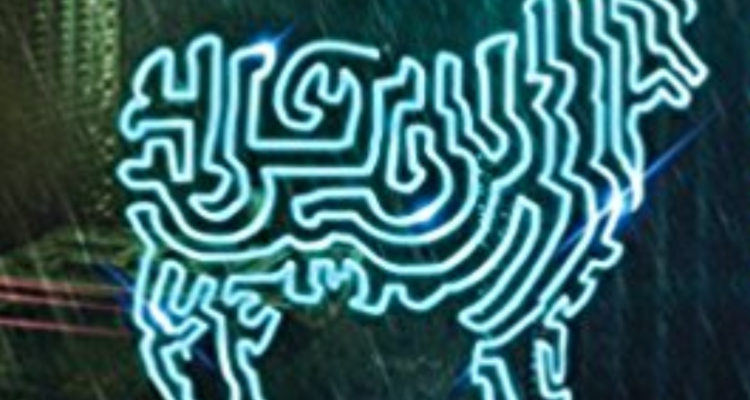Robert Kroese’s The Big Sheep is a fun, genre-bending ride. Kroese is largely an author of humorous,
deeply sarcastic science fiction, although he writes (and writes very well) in multiple
genres. Indeed, I don’t think enough work has been done in the humorous sci-fi genre. Fans of
Kroese’s Mercury series, which pokes tongue-in-cheek humor at everything from lawyers (no offense
taken) to bureaucratic agencies, will not be disappointed with The Big Sheep.
The Big Sheep is ultimately a work of science fiction, set in a dystopian, post-apocalyptic world
after an event referred to as The Collapse. As a result, a large part of Los Angeles, known as the
Disincorporated Zone, essentially became a chaotic, third-world country run by mafia lords. Sheep
is also a detective noir thriller, featuring seemingly high-functioning autistic and mysterious
private investigator Erasmus Keane (who refers to himself as a phenomenological inquisitor) and his
trusty sidekick Blake Fowler, who tries to keep Keane semi-grounded.
The novel’s plot and atmosphere harken to Philip K. Dick’s Do Androids Dream of Electric Sheep?,
which inspired the movie Blade Runner. I would strongly recommend reading Androids before reading
The Big Sheep, since the reader will understand the connections and get the humorous references more
easily.
In Sheep’s main plotline, detectives Keane and Fowler are hired by two different clients to solve what
appear to be two different cases. In the first case, a Hollywood star is afraid that someone may
be trying to kill her. In the second, a lab is searching for a missing genetically modified sheep
. All this action is set against a backdrop of Hollywood-style cinema, which ties in well with
the issues of antiaging and immortality raised by the novel. After all, no one likes getting old,
right? Especially if you’re an actor whose ability to get work depends largely on your looks.
To make it even more interesting, there is a subplot involving Fowler’s missing girlfriend Gwen.
Kroese suggests enough hints to make the reader keep guessing. What happened to Gwen? Is Keane who
he says he is? What led to The Collapse? The multiple mysteries presented make for a gripping read
until the very end.
Kroese’s witty dialogue has always been a huge draw for me, and here are some illustrative quotes:
“It was never a good thing when a bad guy started quoting Nietzsche.”
“You’re breaking up, Banerjee,” said Keane. “We’re going through a tunnel.” He ended the call. “Was
that a good idea?” I [Fowler] asked.
“He was getting on my nerves,” said Keane. “Go through a tunnel if it makes you feel better.”
“Oh, she’s watering his plants all right,” said Keane.
“Congratulations,” I said. “That’s the worst euphemism for intercourse I’ve ever heard.” “No,” said
Keane. “Intercourse is the worst euphemism for intercourse you’ve ever heard. Normal people call it
f*cking.”
One reviewer wrote that Sheep is a novel that “fires on all cylinders.” It is exactly that, an
enjoyable, humorous ride that keeps the reader on his toes until the very end.
Kroese’s The Last Iota, a novel set in the same dystopian world as The Big Sheep, ties in well with Sheep and expands on its subplot.
 Maria Riegger is a banking/corporate attorney in Washington, DC by day (please don’t hold that against her), and a fiction author by night. She is a Gemini whose head has always been in the clouds. Indeed, from a young age, her mother scolded her for not paying attention. An irreverent Gen X’er, she writes gritty contemporary romance, with plenty of sarcasm. She can be found at www.lawschoolheretic.com, www.facebook.com/lawschoolheretic or at @RieggerM.
Maria Riegger is a banking/corporate attorney in Washington, DC by day (please don’t hold that against her), and a fiction author by night. She is a Gemini whose head has always been in the clouds. Indeed, from a young age, her mother scolded her for not paying attention. An irreverent Gen X’er, she writes gritty contemporary romance, with plenty of sarcasm. She can be found at www.lawschoolheretic.com, www.facebook.com/lawschoolheretic or at @RieggerM.




